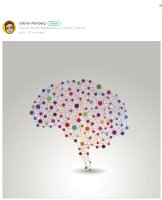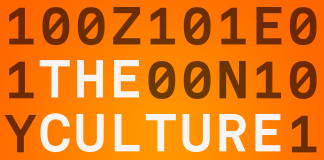
Mental Models I Find Repeatedly Useful by Gabriel Weinberg

Read the summary below and get the key insights in just 10 minutes!

Gabriel Weinberg, founder of the search engine DuckDuckGo, has compiled a list of models, concepts, phenomena and theories that have helped him understand and solve problems. He provides pithy explanations and links for further study. getAbstract recommends browsing this useful collection and bookmarking it for future reference.
[/text_block]

- How “mental models” can aid your comprehension of the world and
- Which specific models DuckDuckGo founder Gabriel Weinberg recommends.

According to Berkshire Hathaway vice chairman Charles Munger, “80 or 90 important models will carry about 90% of the freight in making you a worldly-wise person.” To broaden your understanding of the world and to help you solve everyday problems, study “mental models” and learn to employ them.
According to the “Fundamental Attribution Error,” people too often look at a person’s individual character to explain his or her behavior and neglect to credit external or situational factors. The related “Hanlon’s Razor” cautions never to assume “malice” where “carelessness” will suffice as an explanation. The “Third Story” is a rendition of events by an unbiased witness. Opposing sides, while they may not agree with each other, will concur on the facts as stated in the third story.
“Mental models are useful to try to make sense of things and to help generate ideas.”
Both “Campbell’s Law” and the “Streisand Effect” suggest that trying to conceal information will make it spread more broadly, particularly on the Internet. “Godwin’s Law” states that if an online discussion on any topic continues long enough, one contributor will eventually liken someone to Hitler or something to Nazism. Internet algorithms create “Filter Bubbles”: Search engines and content sites expose people exclusively to information that matches their existing views. As a result, Internet users can get trapped in “their own cultural or ideological bubbles.”
“I am not endorsing any of these concepts as normatively good; I’m just saying they have repeatedly helped me explain and navigate the world. I wish I had learned many of these years earlier.”
“Preserving Optionality” means delaying decision making and leaving options open until you know more important facts. The “Tyranny of Small Decisions” describes a situation where you forfeit an attractive outcome by making a combination of minor, seemingly inconsequential decisions. The “Eisenhower Decision Matrix” states that “what is important is seldom urgent, and what is urgent is seldom important.” Strive to prioritize “high-leverage activities.”
A “Forcing Function” is a “task, activity or event” that will press someone to do something. If the government issues a “Market-Pull Technology Policy,” it defines a future standard that is currently impossible: As a result, the market will rush to create technology that meets it. According to the concept of “Luck Surface Area,” if you feel enthusiastic about something, you will automatically motivate the people around you.
[/text_block]

Gabriel Weinberg is the founder and CEO of the search engine DuckDuckGo and the co-author of Traction: How Any Startup Can Achieve Explosive Customer Growth.
[/text_block]

Get key insights from 15,000+ non-fiction books at GetAbstract.com.
[/text_block]




